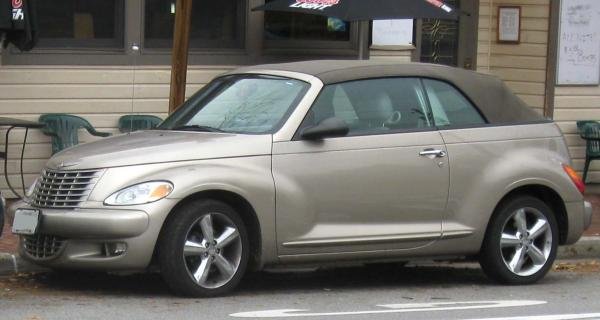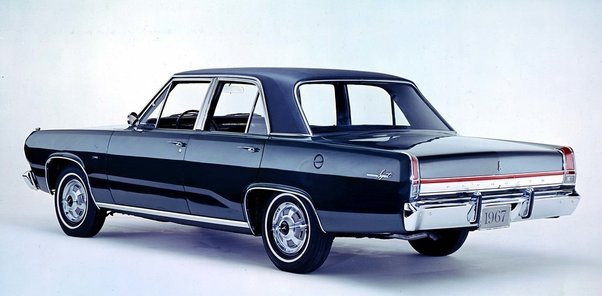The Plymouth brand, once a cornerstone of Chrysler’s automotive lineup, played a significant role in shaping the American automotive industry. Known for its affordability, innovation, and design, Plymouth was a favorite among car buyers for decades. However, despite its early success, the brand eventually faced challenges that led to its decline and discontinuation. This blog post explores the rise and fall of Chrysler’s Plymouth brand, examining its history, key models, and lasting legacy.
1. The Birth of the Plymouth Brand
Early Beginnings:
Plymouth was introduced by Chrysler in 1928 as a low-priced alternative to compete with Ford and Chevrolet. Named after Plymouth Rock, the brand was aimed at budget-conscious consumers looking for reliable and affordable vehicles.
Initial Success:
- Affordable Innovation: Plymouth quickly gained popularity by offering features typically found in more expensive cars, such as hydraulic brakes and rubber engine mounts, at an affordable price.
- Market Positioning: Positioned as Chrysler’s entry-level brand, Plymouth provided an accessible option for first-time car buyers and those seeking value for money.
Impact on Chrysler:
- Sales Growth: The introduction of Plymouth helped Chrysler grow its market share during the Great Depression, as consumers sought out affordable yet dependable vehicles.
- Brand Recognition: By the 1930s, Plymouth had established itself as a major player in the automotive market, becoming one of the top-selling car brands in the United States.
2. Plymouth’s Golden Era

Post-War Boom:
The post-World War II era marked a period of prosperity for Plymouth, with the brand experiencing a surge in popularity. The 1950s and 1960s were particularly successful years for Plymouth, as it introduced several iconic models that resonated with American consumers.
Key Models:
- Plymouth Belvedere: Introduced in 1951, the Belvedere became a symbol of mid-century American style with its sleek design and powerful V8 engine.
- Plymouth Fury: Launched in 1956, the Fury was known for its performance and stylish looks, becoming one of Plymouth’s most famous models.
- Plymouth Barracuda: In 1964, Plymouth entered the muscle car market with the Barracuda, a model that would become legendary in automotive history.
Cultural Impact:
- Hollywood and Pop Culture: Plymouth cars became iconic in American pop culture, with models like the 1958 Plymouth Fury starring in films such as “Christine,” further cementing the brand’s place in automotive history.
- Motorsport Success: Plymouth also made its mark in motorsports, particularly with its high-performance muscle cars that competed in NASCAR and drag racing events.
3. The Decline of Plymouth
Challenges in the 1970s:
Despite its earlier success, Plymouth began to face challenges in the 1970s. The oil crisis, changing consumer preferences, and increased competition led to declining sales and market share.
Factors Contributing to the Decline:
- Fuel Efficiency Concerns: The oil crisis of the 1970s prompted a shift towards more fuel-efficient vehicles, a trend that Plymouth struggled to adapt to with its larger, less efficient models.
- Brand Identity Crisis: Plymouth’s position as an entry-level brand became blurred as Chrysler’s other brands, like Dodge and Chrysler, expanded their own lineups, leading to internal competition.
- Market Competition: The rise of Japanese automakers offering affordable and fuel-efficient cars further eroded Plymouth’s market share.
Attempts at Revival:
- Rebranding Efforts: In the 1980s and 1990s, Chrysler attempted to revive Plymouth with new models like the Plymouth Voyager minivan and the Plymouth Neon, but these efforts were not enough to reverse the brand’s decline.
- Limited Innovation: While Plymouth introduced some innovative models during this period, the brand struggled to maintain its distinct identity in an increasingly competitive market.
4. The End of an Era
Discontinuation in 2001:
After years of declining sales and reduced market presence, Chrysler made the difficult decision to discontinue the Plymouth brand in 2001. The last model produced under the Plymouth nameplate was the 2001 Plymouth Neon.
Legacy of Plymouth:
- Impact on Chrysler: Despite its discontinuation, Plymouth’s legacy lives on within Chrysler’s history, having played a crucial role in the company’s growth and success during its formative years.
- Collector’s Value: Many Plymouth models, particularly those from the brand’s golden era, are highly sought after by collectors and car enthusiasts, preserving the brand’s legacy in automotive history.
- Cultural Memory: Plymouth remains a symbol of American automotive innovation and style, remembered fondly by those who experienced the brand’s heyday.
5. Conclusion
The rise and fall of Chrysler’s Plymouth brand is a story of innovation, success, and eventual decline. From its early days as an affordable alternative to its golden era of iconic models, Plymouth left a lasting impact on the American automotive landscape. While the brand may no longer be in production, its legacy continues to influence car enthusiasts and collectors alike, reminding us of a time when Plymouth was a driving force in the industry.

